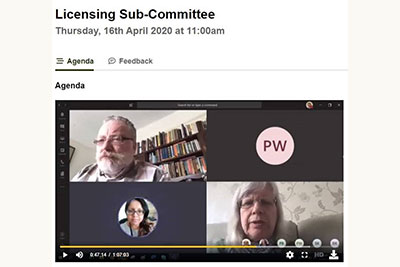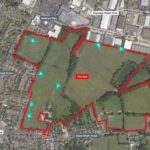The first-ever partially virtual Prime Ministers Questions was held today in the Houses of Parliament. Using Zoom, it allowed parliament to get back to questioning the Government on the steps it is taking to tackle the COVID-19 crisis. The “hybrid proceedings” were approved by a reduced house on the 21st allowing for 50 members to sit and further 120 connected via Zoom.
This radical change in approach in the Houses of Commons, reflects a wider series of changes happening across the UK in Local Councils. Ordinarily, the 1972 Local Government Act requires councillors to be present to decide applications, but the Coronavirus Act and the temporary regulations override this during the COVID-19 pandemic. The regulations came into effect on Saturday 4 April. Committee meetings can now take place virtually, by phone or video link.
For example, the London Borough of Richmond Upon Thames holding a virtual licencing committee on the 16th April. Councillor Jonathon Cardy chaired the meeting as a practice for a virtual Planning Committee on the 29th April. Using Zoom the Council has established how to run the meetings, how to chair and how to record the key decisions.
Not all virtual meetings have been successful with a planning meeting in Somerset interrupted by trolls using fake names and with strange grunting noises. Oxford City Council plans to move to virtual meetings once they have found the right system that allows them to manage meetings effectively.
In Oxford, a planning consultation is being managed virtually rather than in the village hall. Virtual meetings could replace many other processes. The Grenfell Inquiry is looking at Zoom to manage the many hundreds of people involved.
Whether using Zoom, Microsoft Teams or Houseparty, many processes lend themselves to be managed virtually. Governing, consulting or sharing ideas may change dramatically as a result of the COVID -19. In some cases, the virtual may replace the face to face as a better way of managing certain processes saving on travel, room hire and being a more effective use of people’s time.
Selling houses may become virtual to avoid contact and transmission with a range of software available to do this. Verdo, Kew Bridge by Ecoworld has an example of a virtual tour of an unbuilt 2 bedroom flat. Office space can be viewed virtually, saving time and avoiding person to person contact.
Maybe this is the start of a fundamental change in the way we do business? Only time will tell.
© London West (powered by ukpropertyforums.com)














